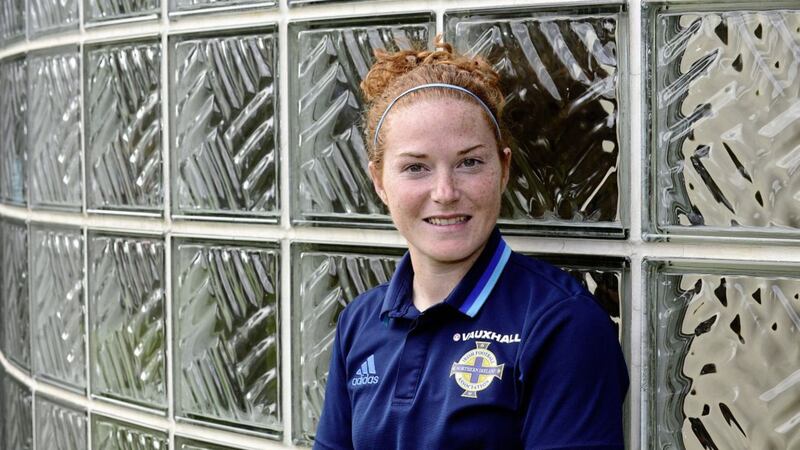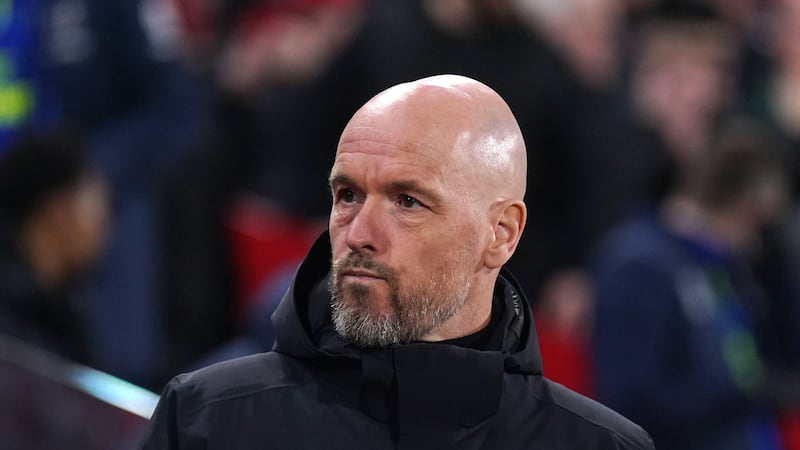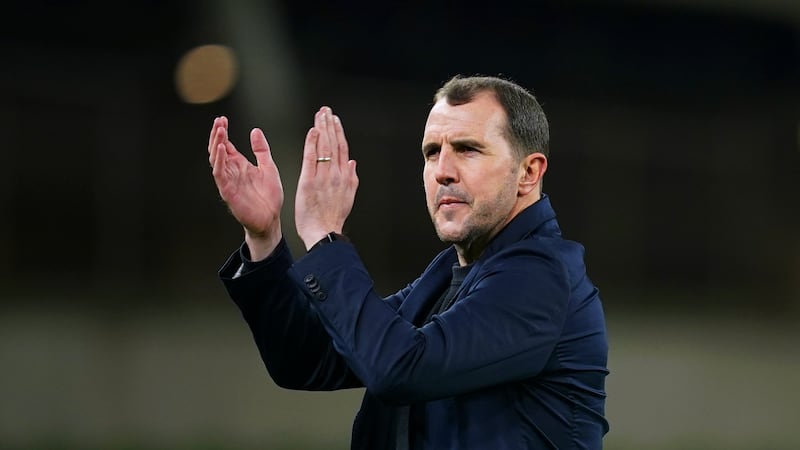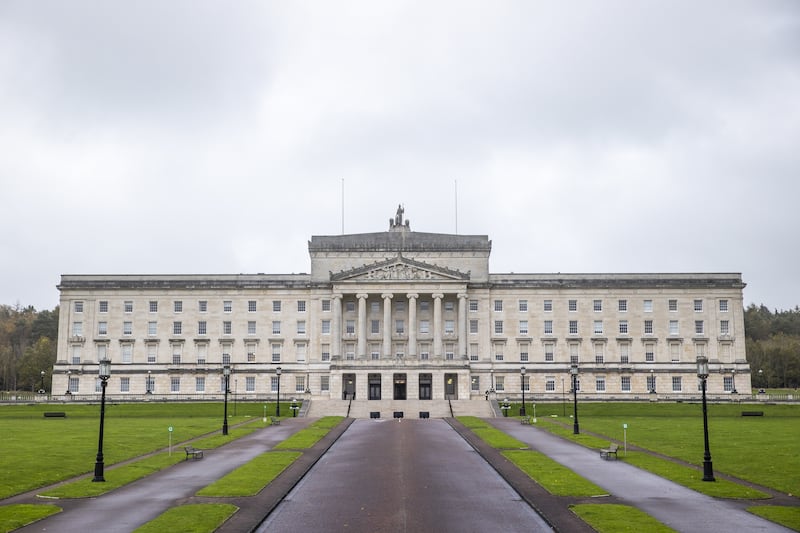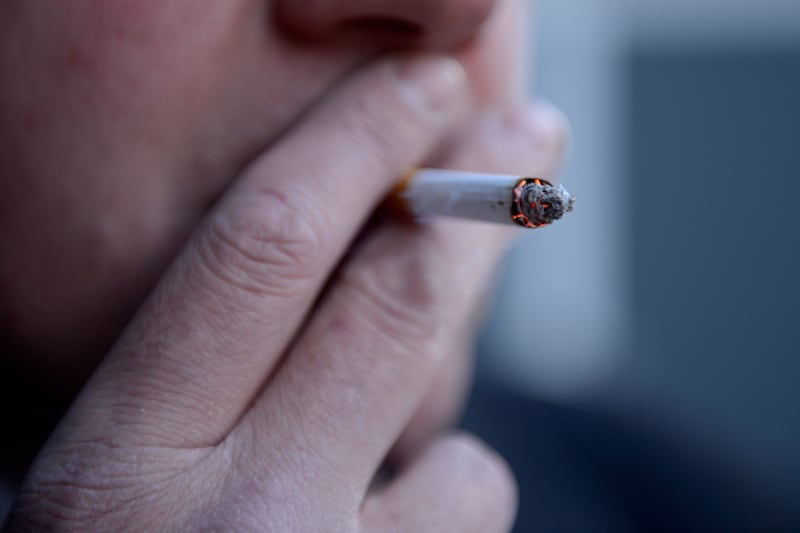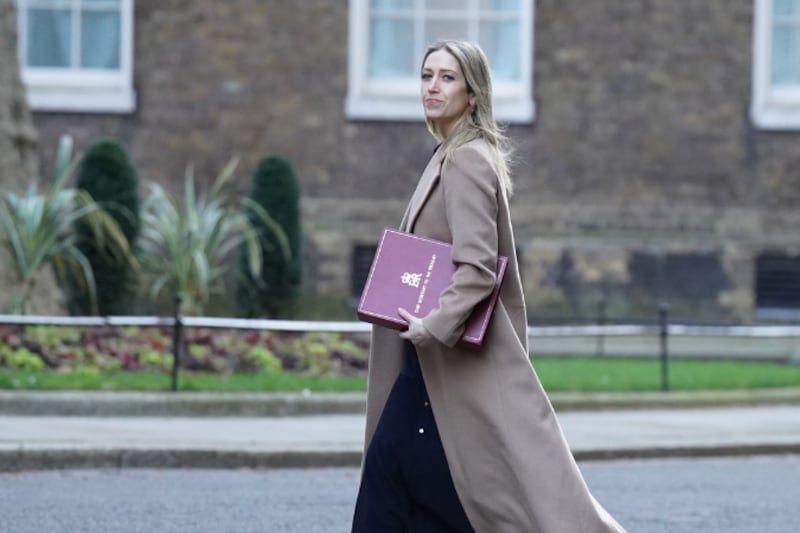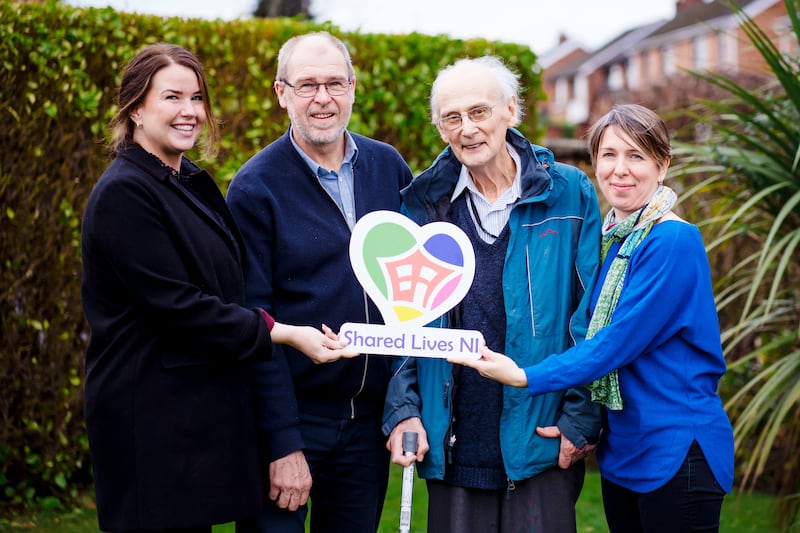THERE was a stage in my life when I loved going to Windsor Park. Could think of absolutely nothing else I’d rather do on a Wednesday evening.
This stretch covered two qualification campaigns – the first, for the 1992 European Championships, and then a fair part of the 1994 World Cup. Back then, the only way you knew a match was happening at all was from the newspapers or, more often than not, the six o’clock bulletin a few hours before kick-off.
At nine years of age, you’re not paying a whole lot of attention to the news, even then becoming almost anaesthetised to the daily diet of murder and mayhem. Sport always provided an escape, in whatever form it came.
Jackie Fullerton would appear, looking ahead to that evening’s game, speaking to Billy Bingham, a couple of players in big long coats as the biting cold set in, before a brief rundown of the exotic creatures Northern Ireland would be facing.
This is where Jackie got me, every time. In those days, you didn’t need to have a ticket. If you wanted to go, you went. Soon, the rhyming would commence. Dad, please can we go to the match tonight? Probably just in the door from work, his enthusiasm seldom matched mine.
And yet, having grown up kicking a football around Cregagh estate - where a young lad called George Best would occasionally join in and lead them all a merry dance - he would always have followed Northern Ireland’s fortunes, in the same way I vividly recall us dancing around the living room when Republic of Ireland goalkeeper Packie Bonner palmed away Daniel Timofte’s penalty at Italia ’90.
The more Best’s genius flourished on the big stage, the more young men followed his every move with interest, and with pride. When a connection is forged in childhood, it is hard to sever.
I had no such affinity with Northern Ireland. My interest in going to Windsor Park was almost solely to watch the other team. Not even to support them, I really didn’t care that much, but to get a first hand glimpse of men you only ever saw snippets of in the sky high pile of videos stacked beside the TV.
In October 1990, the Denmark team that went all the way to European glory less than two years down the tracks came to town. Peter Schmeichel was like something from another world the way he filled the goal and, although the game was awful, some silky touches from Michael and Brian Laudrup sent me home happy.
It was the same a month earlier when the Yugoslavia side that Denmark replaced at Euro ’92 left Windsor with a 2-0 win – the almost mythical Red Star Belgrade side supplying the bulk of a team tipped to go on big things, until the outbreak of the Yugoslav Wars.
Getting to see the likes of Dragan Stojkovic, Dejan Savicevic and Robert Prosinecki 20 minutes from your front door, as opposed to the three hour-plus trek down to Dublin, was an almighty privilege.
Everything else that went with going to Windsor Park in those days, well, you could take or leave. My dad always seemed a bit on edge on those nights. Over time it became clear why.
The walk to the creaking old ground through dimly-lit streets amid a sea of red, white and blue, the singing, the No Surrender, the Billy Boys, the heightened reaction any time, say, Anton Rogan or Gerry Taggart made a mistake.
‘Football for All’ was a long way away then, and the Irish Football Association (IFA) can only be commended for the strides made since the days of turning a blind eye to such naked sectarianism and hostility.
That process was about reconciliation and realising that change, not some half-hearted nod to compromise, was needed. Moving into a post-Good Friday Agreement society, the buck stopped with the IFA.
Windsor has been given a much-needed facelift, community initiatives were put in place to encourage inclusivity, while the prehistoric chants of bygone days have been largely weeded out. Yet the playing of God Save the Queen remains the elephant in the room.
Tuesday night’s ‘Game of Two Halves’ programme reopened a debate that tends to fizz and fire every so often before eventually drifting back off into the ether.
While IFA chief executive Patrick Nelson cautiously minded his step, the contributions of former Northern Ireland manager Michael O’Neill, current Northern Ireland captain Marissa Callaghan and ex-Ireland rugby star Rory Best added further clarity to the discussion, and a window into conversations that have taken place behind closed doors for far too long.
The political sensitivities surrounding the anthem debate need little explanation, but the easiest option is always to do nothing. With voices of influence growing ever louder, that is simply not good enough – and Callaghan is a prime example of why.
From Divis, she is a die-hard Celtic fan whose childhood hero was Henrik Larsson. Her father used to bring her over to Celtic Park to support the Bhoys any chance he got. Growing up, she ran about the streets of west Belfast in a Republic of Ireland shirt.
Yet Callaghan will lead Northern Ireland out at next summer’s Euros in England. She loves playing for Northern Ireland - moreover, she is proud to play for Northern Ireland. That might raise the hackles of some within her own community, but it isn’t something she shies away from or downplays.
Therefore the image of the Cliftonville midfielder standing, eyes forward, mouth closed while several of her team-mates sing the anthem should not sit easily with the IFA top brass.
"It's quite sad, I think, in terms of...Northern Ireland don't really have their own identity," she said.
“As a Catholic player, unfortunately I don't get that experience of standing tall and singing the anthem as loud as I can but it doesn't take away the pride and the passion and what it means to pull on the green shirt.
"It will take someone to think outside the box and be brave enough to move it forward."
It also requires a will to do so.
Surely there isn’t anybody who would genuinely expect or advocate God Save the Queen being replaced by something from the pen of Van Morrison or Gary Lightbody, but would playing something like Danny Boy afterwards - or a second anthem as adopted in rugby - really be that difficult a sell?
As Northern Ireland supporter Graham Kenny said in Tuesday night’s programme, nobody should be made to feel uncomfortable at Windsor Park except the opposition. Unfortunately, for a percentage of patrons and playing personnel, that is still not the case.
Political leaders have a part to play, but ultimately it falls upon those at the head of the organisation to initiate change. After all, they’ve done it before.
Why can’t they do it again?

